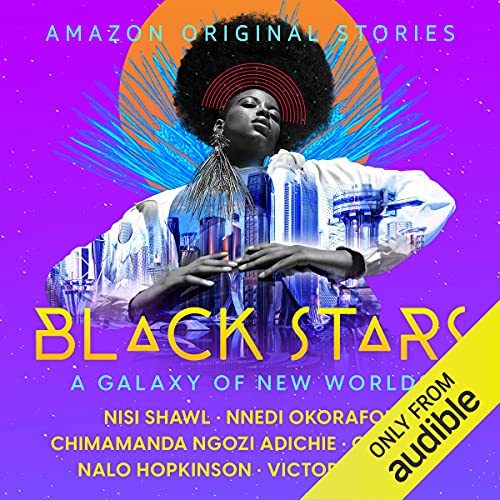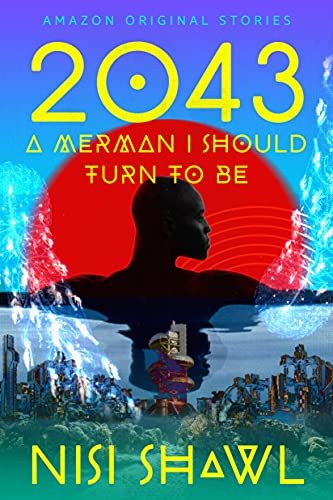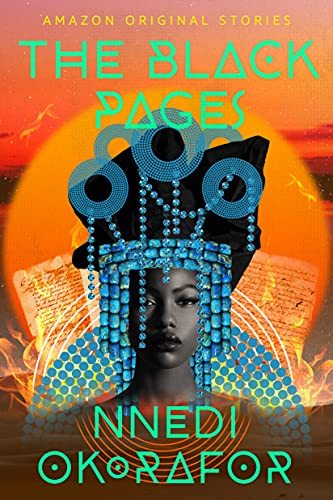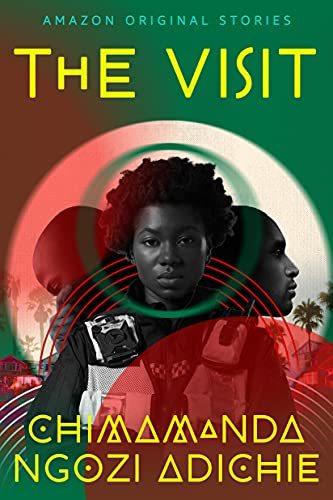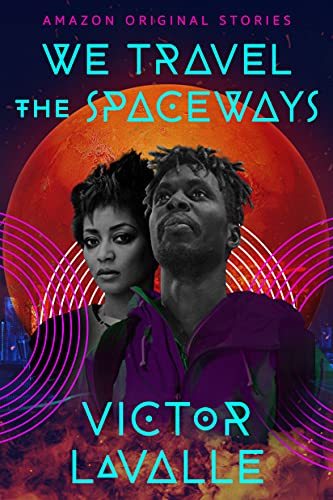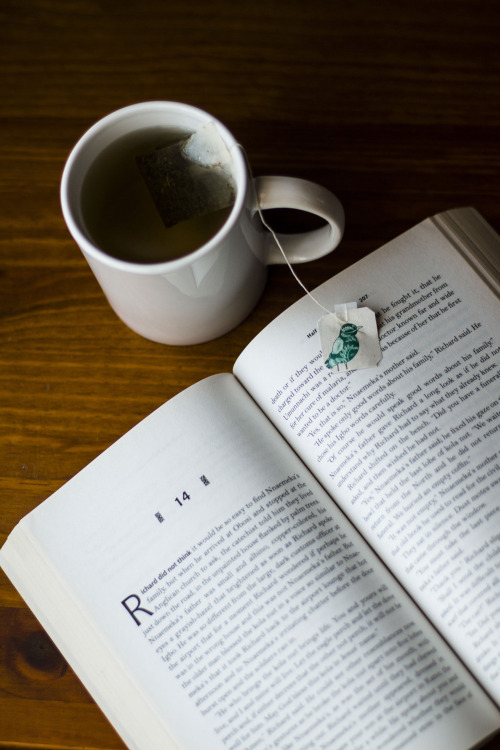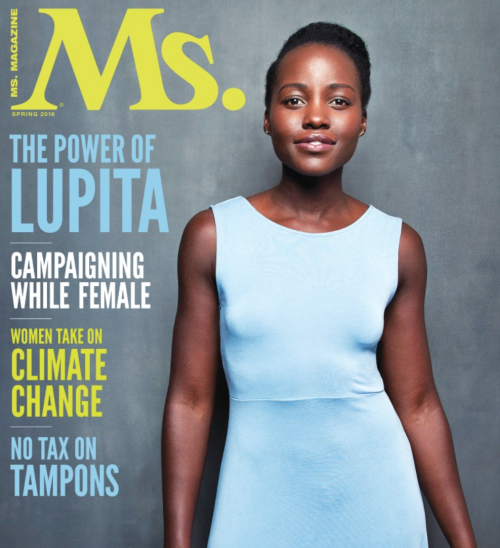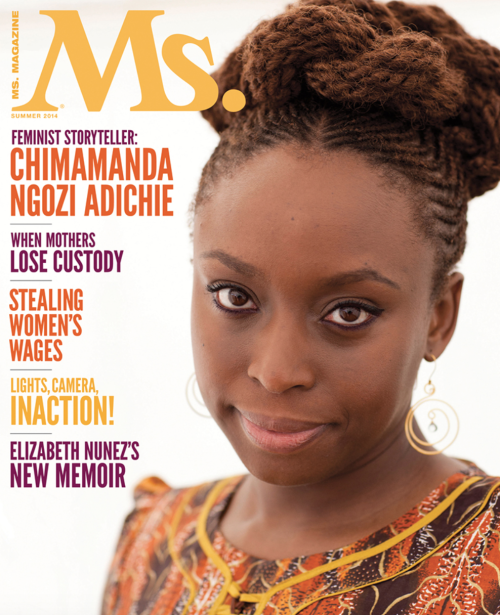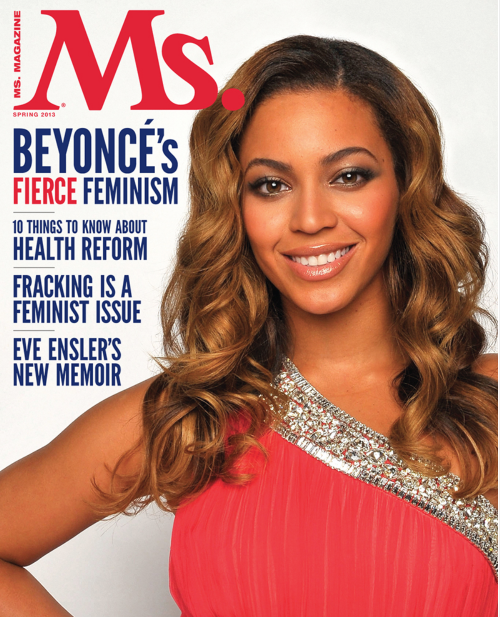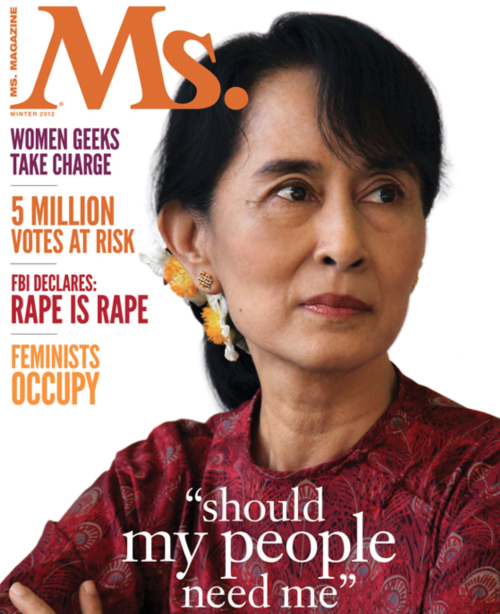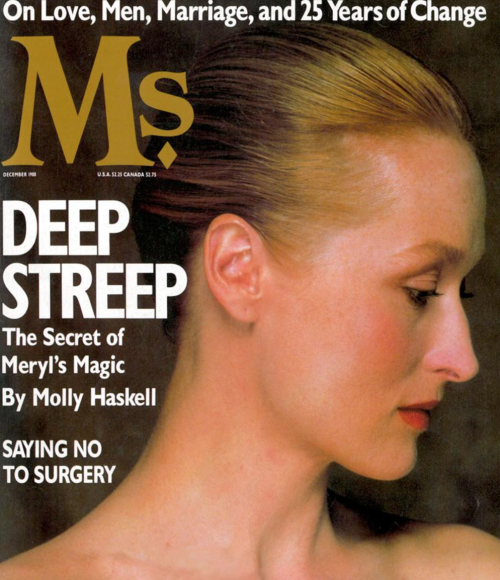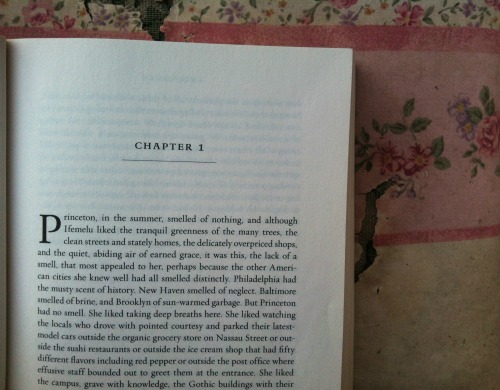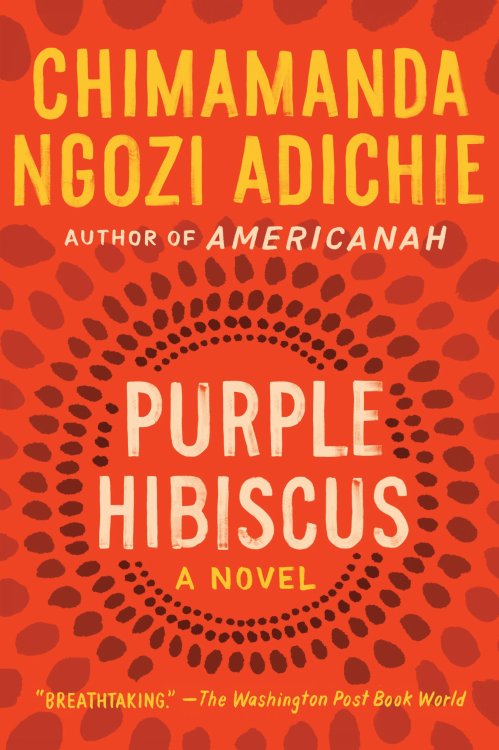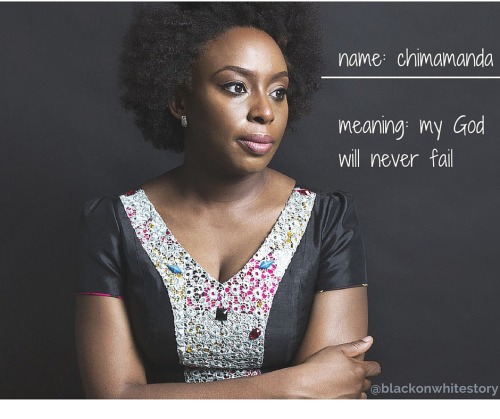#chimamanda ngozi adichie
Chimamanda Ngozi Adichie, the women who inspired Beyonces single “Pretty Hurts”, provides a fresh and free thinking view to the idea of Feminism. Watch and be inspired.


“teach her to reject likeability. her job is not to make herself likeable, her job is to be her full self, a self that is honest and aware of the equal humanity of other people.”
— dear ijeawele, or a feminist manifesto in fifteen suggestions by chimamanda ngozi adichie.
Black Stars: A Galaxy Of New Worlds (2022)
written by Nisi Shawl, Nnedi Okorafor, Chimamanda Ngozi Adichie, C.T. Rwizi, Nalo Hopkinson, Victor Lavalle
read by LeVar Burton, Naomi Ackie, Nyambi Nyambi, Indya Moore, Andenrele Ojo, Brian Tyree Henry
Post link
Women Who Inspire: 15 Iconic Ms. Covers You’ll Want to Frame http://msmagazine.com/blog/2016/03/08/women-who-inspire-15-iconic-ms-covers-youll-want-to-frame/
Post link
Chimamanda Ngozi Adichie, Purple Hibiscus (2003)
Things started to fall apart at home when my brother, Jaja, did not go to communion and Papa flung his heavy missal across the room and broke the figurines on the étagère. We had just returned from church. Mama placed the fresh palm fronds, which were wet with holy water, on the dining table and then went upstairs to change. Later, she would knot the palm fronds into sagging cross shapes and hang them on the wall beside our gold-framed family photo. They would stay there until next Ash Wednesday, when we would take the fronds to church, to have them burned for ash. Papa, wearing a long, gray robe like the rest of the oblates, helped distribute ash every year. His line moved the slowest because he pressed hard on each forehead to make a perfect cross with his ash-covered thumb and slowly, meaningfully enunciated every word of “dust and unto dust you shall return.”
Post link

Americanah by Chimamanda Ngozi Adichie
I loved this book ! Easy to read and i love how it dealt with the questions of race and identity (the blog parts were truly the best ! ) however i had a lot of trouble with the main character (Ifemelu) she lost me…
Anyway i don’t want to spoil anything i would definetly recommand this one and i can’t wait to read another book by chimamanda Ngozi adichie.
Here is a link to one of her tedtalks https://youtu.be/D9Ihs241zeg
#BobbiesTake excerpt from Half of a Yellow Sun
“The Igbo say that the maker of the lion does not let the lion eat grass.
I watched Nnamdi go, watched until the red dust had covered his boot prints, and felt the moistness of pride on my skin, in my eyes. Pride at his smart olive uniform with the image of the sun rising halfway on the sleeve. It was the same symbol, half of a yellow sun, that was tacked onto the garish cotton tie Papa now wore to his new job at the War Research Directorate every day. Papa ignored all his other ties, the silk ones, the symbol-free ones. And Mama, elegant Mama with the manicured nails, sold some of her London-bought dresses and organized a women’s group at St. Paul’s to sew for the soldiers. I joined the group; we sewed singlets and sang Igbo songs. Afterward, Mama and I walked home (we didn’t drive, to save petrol) and when Papa came home in the evenings, during those slow months, we would sit on the veranda and eat fresh anara with groundnut paste and listen to Radio Biafra, the kerosene lamp casting amber shadows all around. Radio Biafra brought stories of victories, of Nigerian corpses lining the roads. And from the War Research Directorate, Papa brought stories of our people’s genius: we made brake fluid from coconut oil, we created car engines from scrap metal, we refined crude oil in cooking pots, we had perfected a homegrown mine. The blockade would not deter us. Often we ended those evenings by telling each other, “We have a just cause,” as if we did not already know. Necessary affirmation, Obi called it.
It was on one of those evenings that a friend dropped by to say that Nnamdi’s battalion had conquered Benin, that Nnamdi was fine. We toasted Nnamdi with palm wine. “To our future son-in-law,” Papa said, raising his mug toward me. Papa let Obi drink as much as he wanted. Papa was a cognac man, but he couldn’t find Rémy Martin even on the black market, because of the blockade. After a few mugs Papa said, with his upper lip coated in white foam, that he preferred palm wine now, at least he didn’t have to drink it in snifters. And we all laughed too loudly.”
Happy Belated Birthday Daughter of the Soil
Xx
Bella
Post link
The month of September is over which means it’s time to discuss ‘We Should All Be Feminists’ by Chimamanda Ngozie Adichie. I hope you’ve been able to get involved with the book club this month either by reading the essay or watching Adichie’s TED Talk.
What I like about this essay is its accessibility. It’s accessible first and foremost because of its length; I’d have a much better chance of convincing someone who isn’t particularly interested in either reading or feminism to give this text a go than I would offering them a chunky and thick hardback. Its pocket-sized design is really great in this way, and the relatively short length of the text does not take away from its quality either as it moves quickly, covering many different aspects of feminism, making it the perfect text for the aforementioned purpose. Adichie also creates accessibility in her writing style through combining anecdotal stories of her life with a humorous tone and limited use of subject-specific or low frequency lexis.
However, the essay’s length and style also had some drawbacks for me personally. After watching Adichie’s Ted Talk, I was surprised to discover that it was almost identical to the essay I had just read and I felt like some aspects of the text could have been expanded on more as it almost moved too quickly for me. Although, this is coming from someone whose main interests are reading and feminism and would happily read hundreds of pages on the things Adichie discusses. This essay would have been absolutely great for me a few years ago when I was first discovering feminism and although this meant it was lacking in some ways for my current self, I can appreciate it’s worth as a ‘guidebook’ or ‘introduction’ to feminism and I am glad it exists as it does! Anna, one of the founders of GA, described the text in a similar way when I told her we would be reading it this month for the Bookclub.
Despite the fact that reading this essay didn’t completely blow me away, there were some parts of it that I found really interesting. For example, Adichie’s consideration that physical strength was the defining factor that made men the more powerful and important gender one thousand years ago. Through discussing this she highlights the absurdity that this could ever be used as an argument to promote gender inequality in our world today where, amongst other things, intelligence and creativity are valued much more highly. She puts it nicely stating, “We have evolved. But our ideas of gender have not evolved very much.”
Adichie’s forgiveness of the people who have been unintentionally misogynistic towards her throughout her life is also important. In describing her experiences of being on the receiving end of misogyny, for example in describing waiters who greet the man she is with but not her, she states “The waiters are products of a society that has taught them that men are more important than women, and I know that they don’t intend harm’. Even though the way in which the men act anger and upset Adichie, she understands that they are not acting in such a way out of spite but rather because this is the way society has taught them to act. Although Adichie telling these men that they should also greet her might have made her feel better, it probably would not have changed the way they view gender and specifically women in society, but watching her TED Talk or reading her essay might have. It can take a great deal of energy calling out people every time they make a misogynistic comment and Adichie shows the importance here of picking and choosing when it is most productive to react. That said, of course sometimes it is totally okay to call people out when they are being blatantly and intentionally misogynistic and you’re always justified in doing so!
Even before watching the TED Talk, I read parts of the text in my head in Adichie’s voice and was confused why I recognized the line, ‘You can have ambition, but not too much. You should aim to be successful but not too successful, otherwise you will threaten the man.’ I soon realized that part of Adichie’s essay/talk is included in Beyoncé’s song ‘Flawless’ which is why I recognized what I was reading. For me, this reflects the accessibility of this text because it is an example of how Adichie really brought this discussion into the mainstream. I feel as if this text is really important for our generation as it has been represented by many different forms of media and in a world where media dominates, it is necessary that a message can be received on as many platforms as possible and it is Adichie’s straightforward prose that allows for this to be the case.
Another aspect of the text I enjoyed was Adichie’s statement that women are portrayed as ‘inherently guilty’. This portrayal hugely affected me when I used to find excuses for the misogyny I experienced, particularly when I was groped and particularly when no one else knew about it because I was in a packed environment such as a gig. This victim-blaming mind-set was so harmful for me because society has taught us to ‘close your legs’ and ‘cover yourself’ as Adichie comments on in the text. I want to use this as a reminder to never blame yourself for being on the receiving end of misogyny.
Although Adichie has come under some controversy recently for her comments about transgender women, her discussion of gender in this text is seemingly pro-LGBTQ. She states ‘The problem with gender is that it prescribes how we should be rather than recognizing how we are.’ Although I wish Adichie would have further discussed the transgender community in this text, she regularly rejects stereotypes and traditional views of gender throughout. Again, it seems that she does not go into too much detail on the subject because she does not go into too much detail on anything in this text, it’s main drawback for me, but these subtle references help the reader more easily understand the experience of transgender people.
I think my favourite part of the essay is Adichie’s rejection of the so-called evolutionary argument. She states ‘Some people will bring up evolutionary biology and apes, how female apes bow to male apes- that sort of thing. But the point is this: we re not apes.’ Simply put, this sounds so obvious! But I am regularly surprised about how when I express my thoughts on anything that people tend to disagree on, someone says ‘well, apes do it so it must be natural’ or ‘well, that’s how cavemen lived so it must be right’. We have evolved for a reason! We are supposed to be making progress socially and intellectually so it baffles me that people refer to our primitive ancestors or to apes, who we can all agree are not as intelligent as humans, as a point of reference.
Overall, I would recommend this essay. It wouldn’t necessarily be my first recommendation for someone who takes great interest in reading and feminism as I think, if you have the time and the want to do so, there are better and more informative texts to read. I would however recommend this to someone who has considerably less interest in either reading or feminism or both. Considering the short amount of time it takes to read though, it is worth a read for anyone who has the best part of an hour on their hands, maybe not even that if you’re a fast reader!
For the month of October, we will be reading ‘The First Collection of Criticism By A Living Female Rock Critic’ by Jessica Hopper. It was recommended to me for the Bookclub by a fellow GA rep, Sophia Simon-Bashall, and the title immediately caught my eye. It seems like a great fit for our campaign and although music criticism is not something I am particularly well read on, I am very much looking forward to giving this collection of essays a go!
If this book sounds like something you’d be interested in I hope you’ll join me in reading it over the next month. You can send us your thoughts on the text either on Twitter using the hashtag #GABookClub, email us at [email protected] or join our GoodReads group and contribute to the monthly discussion by following this link- https://www.goodreads.com/group/show/230714-girls-against-book-club
The post discussing Jessica Hopper’s essay collection will be up on Sunday 5th November so keep an eye out on our Twitter page for the link then. And if you do have any thoughts on any of the essays then make sure you send them in before this date for a chance to be featured in next months post!
Chimamanda Ngozi Adichie | We Should All Be Feminists
What does “feminism” mean today? That is the question at the heart of We Should All Be Feminists, a personal, eloquently-argued essay – adapted from her much-viewed Tedx talk of the same name – by Chimamanda Ngozi Adichie, the award-winning author of ‘Americanah’ and ‘Half of a Yellow Sun’. With humour and levity, here Adichie offers readers a unique definition of feminism for the twenty-first century – one rooted in inclusion and awareness. She shines a light not only on blatant discrimination, but also the more insidious, institutional behaviours that marginalise women around the world, in order to help readers of all walks of life better understand the often masked realities of sexual politics. Throughout, she draws extensively on her own experiences – in the U.S., in her native Nigeria – offering an artfully nuanced explanation of why the gender divide is harmful for women and men, alike. Argued in the same observant, witty and clever prose that has made Adichie a best-selling novelist, here is one remarkable author’s exploration of what it means to be a woman today – and an of-the-moment rallying cry for why we should all be feminists.Download english (epub) http://bit.ly/1EREZfS
Baixar português (mobi) http://bit.ly/1FgnAeT
Baixar português (epub) http://bit.ly/1BUZLMt
Post link
“I recently spoke at a university where a student told me it was such a shame that Nigerian men were physical abusers like the father character in my novel. I told him that I had recently read a novel called American Psycho, and that it was a shame that young Americans were serial murderers.”
Chimamanda Ngozi Adichie
Post link



